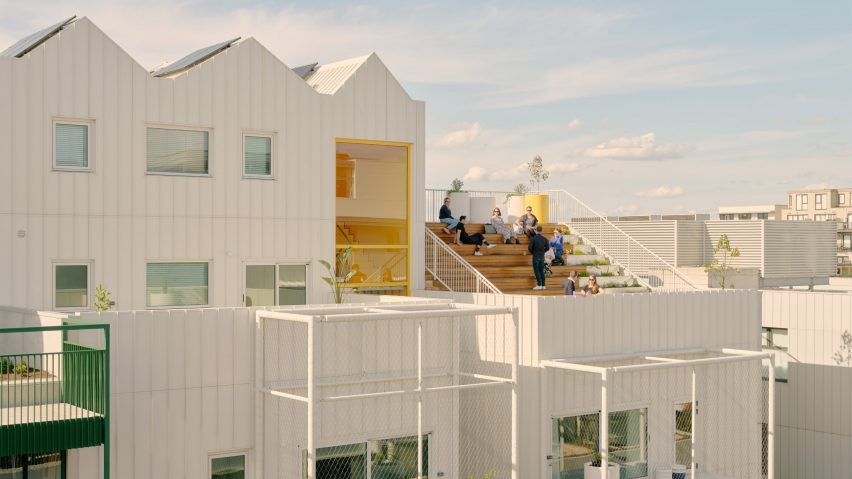
Bright yellow balconies enliven Melbourne apartment block by Austin Maynard Architects
A "mountainous" zigzag roofline and bright yellow balconies define the ParkLife apartment block in the Brunswick neighbourhood of Melbourne, designed by local studio Austin Maynard Architects.
The block is located within Nightingale Village, a collection of six apartment buildings by different architects for housing not-for-profit Nightingale Housing that all demonstrate its development model, aiming to create housing which is "environmentally, socially and financially sustainable".
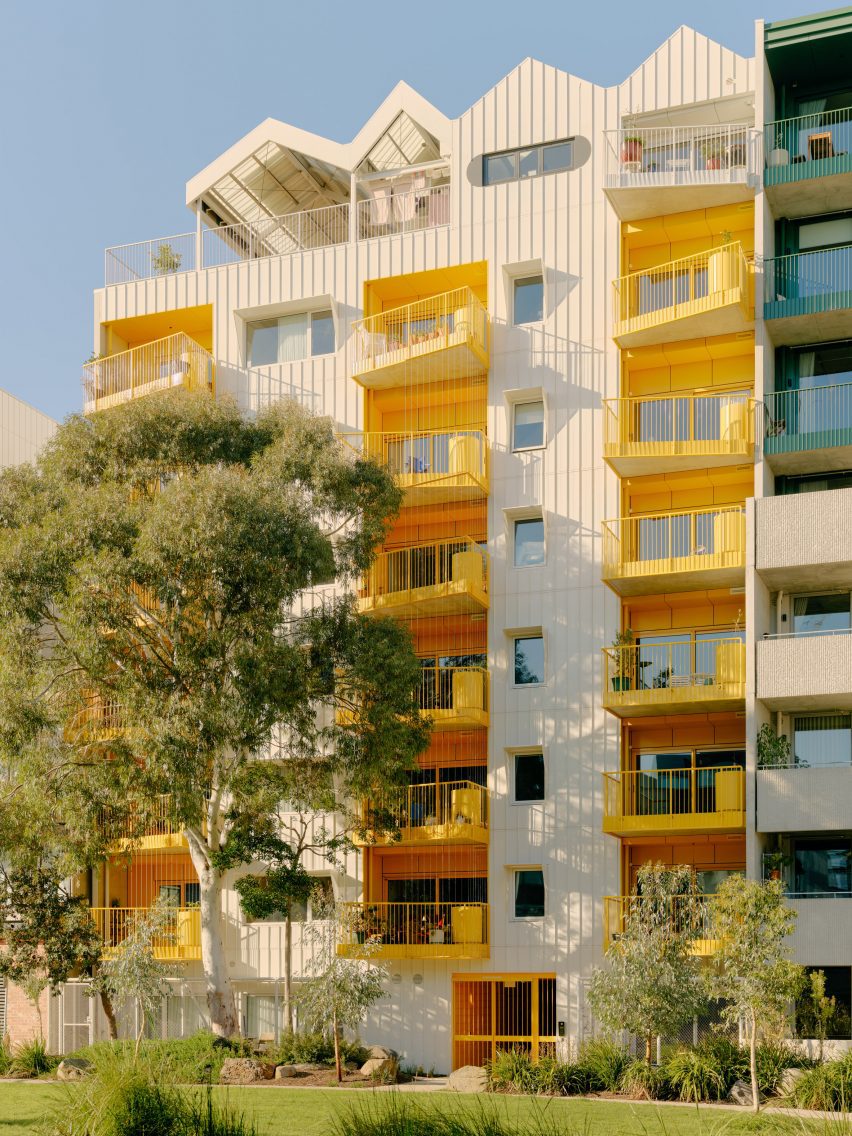
The entire Nightingale Village development was shortlisted in the sustainable building category of Dezeen Awards 2023.
Bordered by neighbouring buildings to the east and west, Austin Maynard Architects opened-up the block of 37 apartments to face a public park to the north, to which it presents a series of ground floor gardens and a facade of yellow balconies.
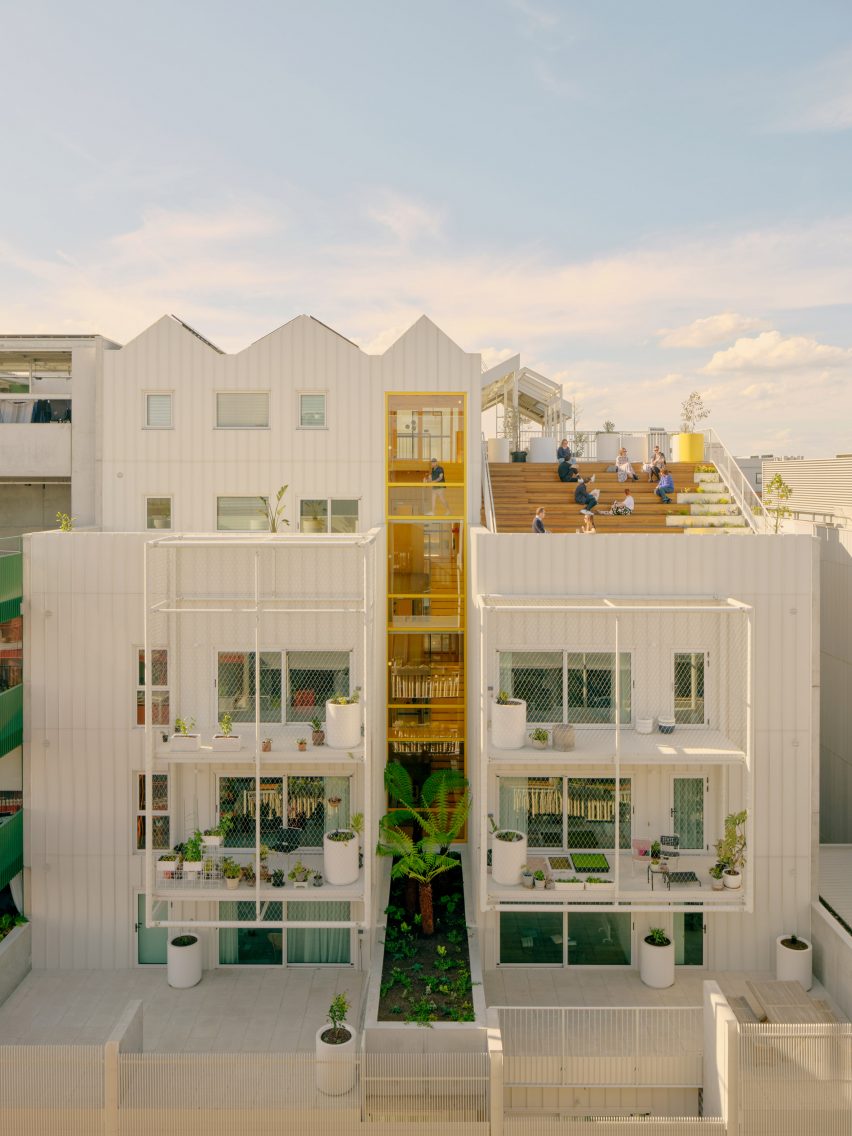
Cutting through the centre of the block is a yellow-painted pathway, which forges a new connection between the park and the more urban condition of the front of the block, as well as providing secure bicycle parking for residents.
"Our site was challenging, with pre-existing interface to the east and proposed planning for an apartment building of a similar scale at the rear," explained the studio.
"Fortunately, just prior to construction, the council acquired the rear site and approved a public park instead."
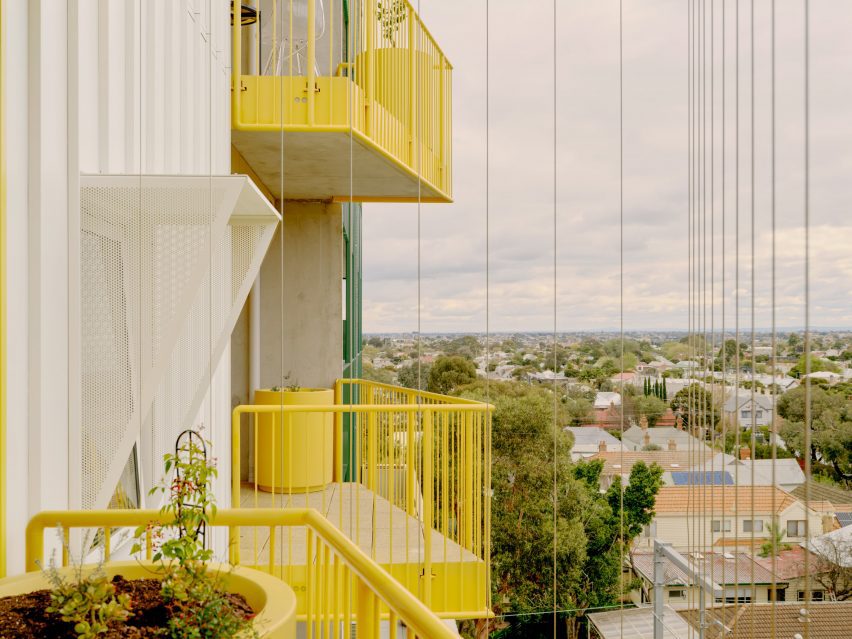
"Now afforded a lush outlook we were able to share the opportunity with The Village," it continued.
"By separating our ParkLife community entry and secure bike parking we made a pathway, creating a central walkway right through the centre of our building, to connect The Village 'hub' at Duckett Street with the new park."
ParkLife is divided into one, two and three bedroom apartments, as well as two of what Nightingale Housing calls "Telihaus apartments" – space-efficient subsidised dwellings that are designated social housing.
Apartments are organised at the front and rear of the block, with two large "light courts" at the centre allowing each to include dual-aspect spaces and an external common space alongside the lift and stair cores.
On the roof, shared facilities including a toilet, laundry and drying area sit alongside a sheltered terrace and the "amphitheatre", an area of stepped wooden seating that overlooks the front of the block.
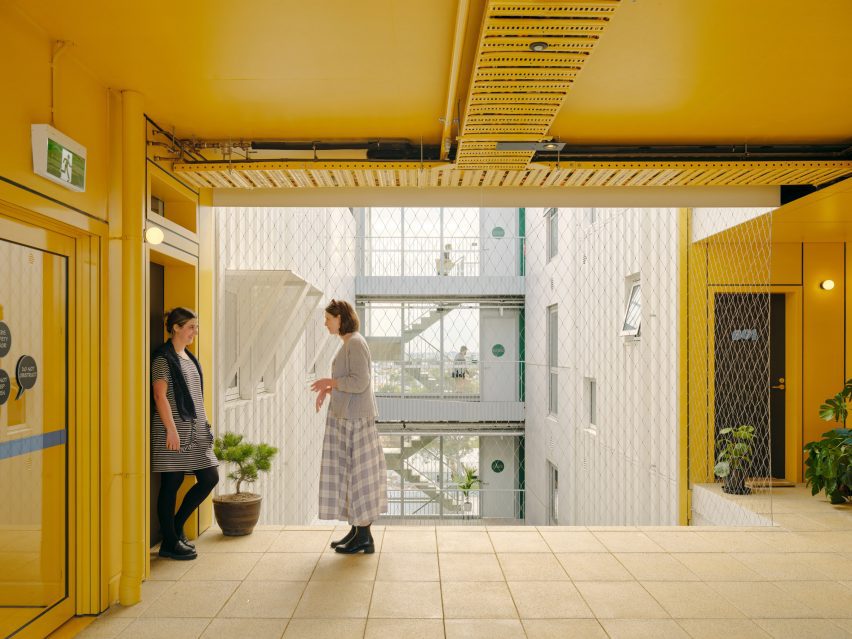
"Designed in collaboration with the Landscape Architects Openwork, [rooftop] spaces include a productive garden with fruit trees and a real grass lawn for picnics," explained the studio.
"There is a covered deck, big enough for large gatherings, with an electric barbecue, sheltered from the harsh sun and strong winds."
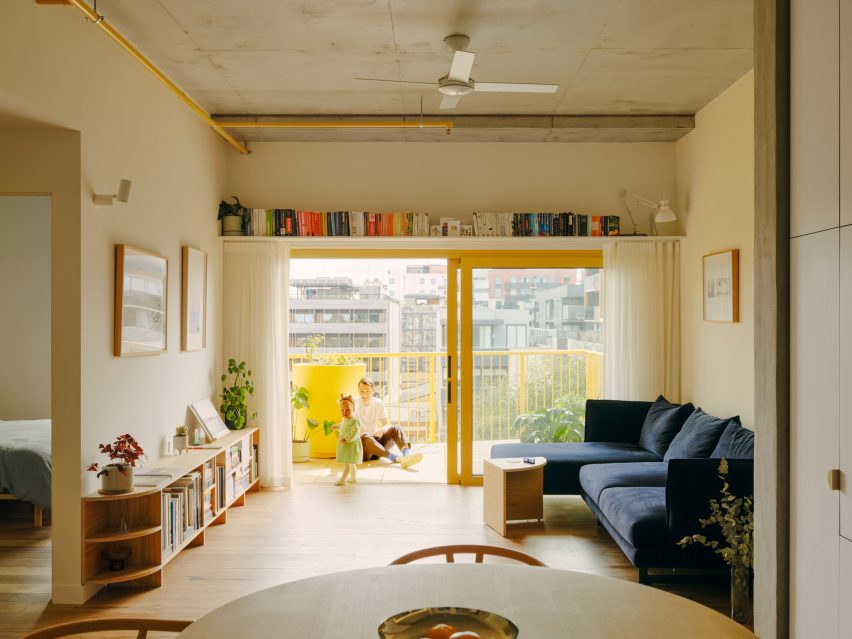
Austin Maynard Architects drew on visual motifs from its previous residential projects for the finishes of the block, such as the zigzagging roofline from RaeRae House, and the yellow colour used in My-House.
White steel cladding covers the exterior, with cables, grills and rods to allow vegetation to grow, and internally the apartments were kept "deliberately simple", with timber floors, white walls and concrete ceilings.
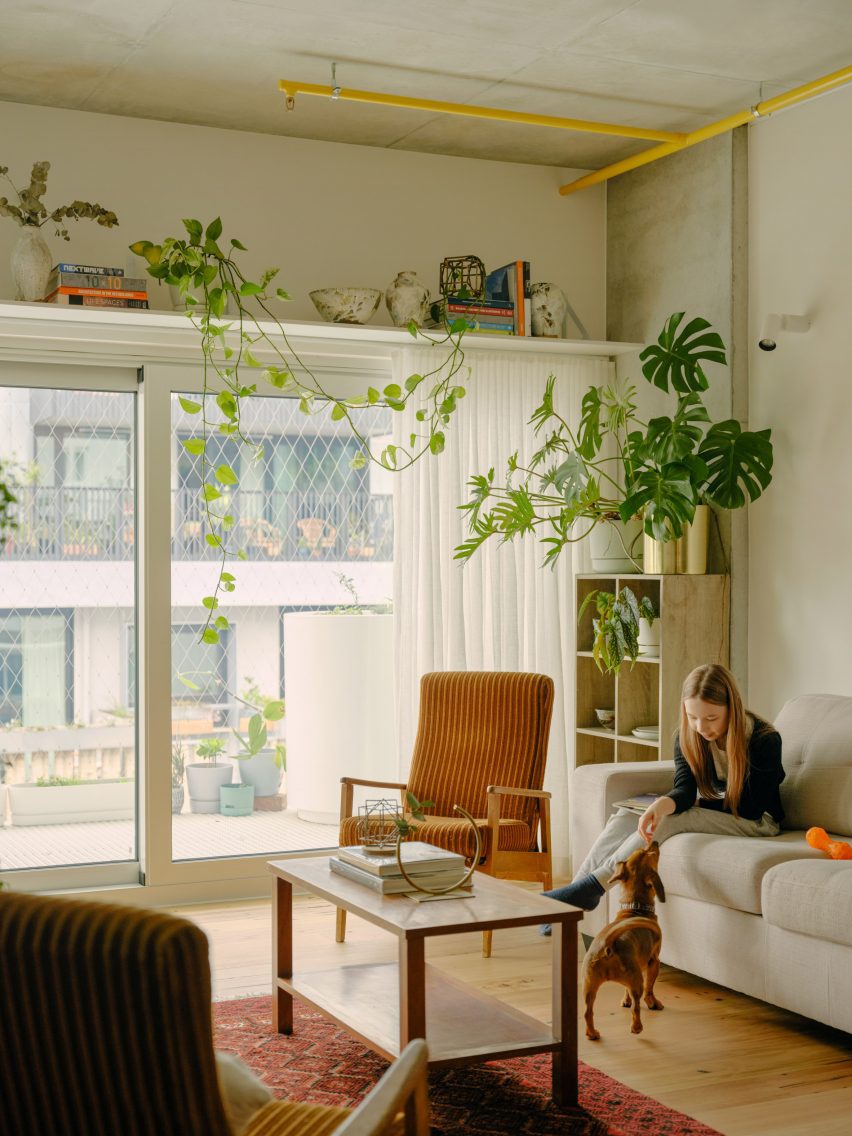
"The intent was to allow the community to personalise their homes rather than apply too many finishes and textures," explained the studio.
"Attractive, functional spaces were created with great views and lots of light, which can be embellished in any way the residents want to make the apartment their home," it continued.
Other apartment buildings completed as part of Nightingale Village include Leftfield, an affordable housing block by Kennedy Nolan finished with ochre-pigmented concrete.
The photography is by Tom Ross